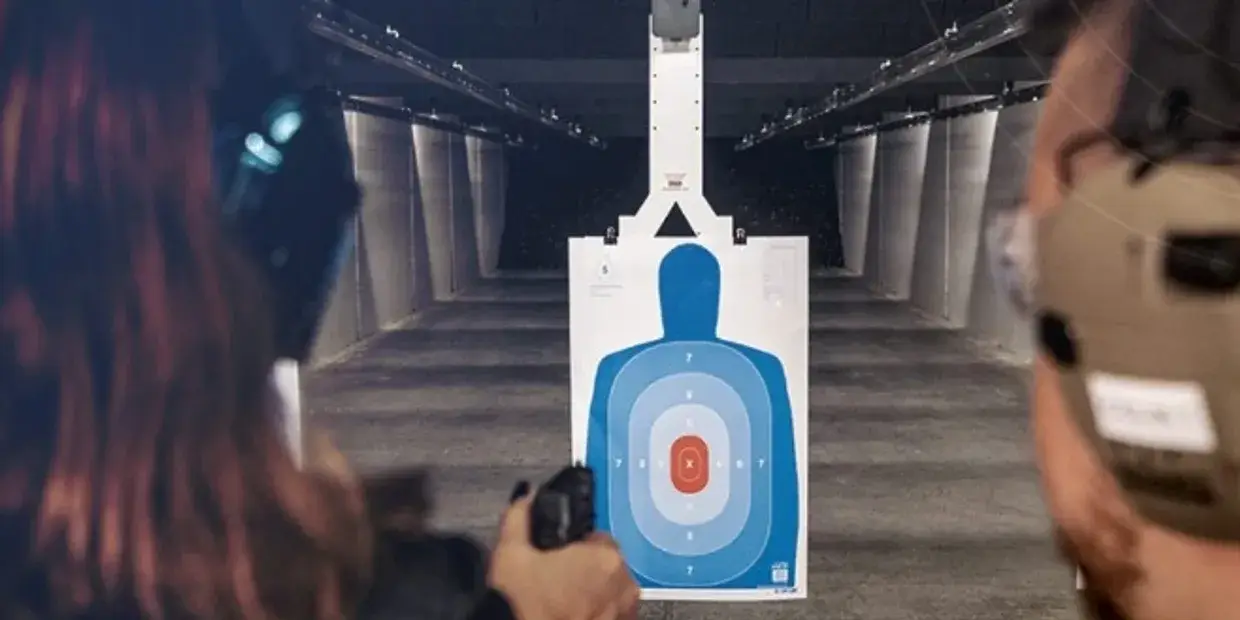Click here for a quick video!
Protecting Your Home: A Police Officer’s Guide to Defending Against Home Invasions
As a police officer, I’ve witnessed firsthand the anxiety and fear that home invasions can instill in citizens. Home is where we should feel the safest, and the thought of that sanctuary being violated is unsettling. While law enforcement works tirelessly to prevent and respond to such incidents, it’s essential for citizens to be proactive in securing their homes and knowing how to react if a home invasion occurs. This guide aims to provide practical advice on preventing home invasions and defending yourself and your family if one happens.
Click here for the Online Home Defense Class!
Understanding Home Invasions
A home invasion is a specific type of burglary where criminals enter an occupied home with the intent to commit a crime, usually theft or assault. Unlike typical burglaries, home invasions are more dangerous because the perpetrators are willing to confront and possibly harm the occupants. Understanding the nature of these crimes can help in preparing for and potentially preventing them.
Prevention: The First Line of Defense
Strengthening Physical Security
- Locks and Doors: Invest in high-quality locks for all doors and windows. Deadbolt locks are a must, and consider reinforcing doors with metal strike plates and door jambs to resist forced entry.
- Windows: Ensure all windows have secure locks. Installing window security film can make it harder for intruders to break glass. Window bars or grilles can also add an extra layer of protection.
- Lighting: Adequate lighting around your home can deter criminals. Install motion-sensor lights in key areas like driveways, backyards, and entry points. Inside, use timers on lights to give the appearance of occupancy even when you’re not home.
- Alarm Systems: A comprehensive security system with alarms, cameras, and motion detectors can be a significant deterrent. Ensure the system is visible from outside, as its mere presence can dissuade would-be intruders.
- Landscaping: Maintain your yard by trimming bushes and trees that could provide cover for criminals. Consider planting thorny shrubs near windows to make access more difficult.
Behavioral Habits
- Lock Up: Always lock doors and windows, even when you’re at home. It’s a simple habit that can prevent an easy entry for intruders.
- Be Cautious with Strangers: Be wary of unexpected visitors. Use peepholes or security cameras to identify anyone who comes to your door. Do not open the door to strangers without verifying their identity.
- Social Media: Avoid posting travel plans or showing off expensive purchases on social media. Criminals can use this information to target your home when you’re away.
- Community Awareness: Get to know your neighbors and keep an eye out for each other. A strong community can be an effective deterrent against crime.
During a Home Invasion: Immediate Actions
If, despite your best efforts, a home invasion occurs, how you react can make a significant difference in ensuring your safety.
Stay Calm and Assess
- Stay Calm: It’s natural to panic, but staying calm will help you think clearly and make better decisions.
- Assess the Situation: Quickly determine the number of intruders and their location. If you can do so safely, try to ascertain their intentions.
Alert Authorities
- Call 911: If you have access to a phone, call 911 immediately. Provide the dispatcher with as much information as possible, including your address, the number of intruders, and any distinguishing features or behaviors.
- Silent Alarms: If your security system has a silent alarm feature, use it. This can alert authorities without tipping off the intruders.
Secure Yourself and Your Family
- Designated Safe Room: Have a pre-determined safe room where your family can retreat in case of an invasion. This room should have a solid door with a lock, a phone, and if possible, a firearm or another means of defense.
- Barricade: If you cannot reach your safe room, barricade yourself in a secure area. Use furniture or other heavy objects to block entry.
- Stay Hidden: If hiding is the only option, find a secure, concealed location and remain quiet. Avoid making noise that could attract the intruders’ attention.
Self-Defense
- Know Your Rights: Understand the laws regarding self-defense in your area. In many places, you have the right to defend yourself with reasonable force if you believe you are in imminent danger.
- Non-Lethal Options: Consider having non-lethal self-defense tools like pepper spray, tasers, or a baseball bat. These can be effective in deterring an intruder without the risk of lethal consequences.
- Firearms: If you choose to own a firearm for home defense, ensure you are trained and comfortable using it. Store it in a secure, but accessible location, and educate all household members on firearm safety.
After a Home Invasion: Steps to Recovery
Surviving a home invasion is traumatic, but it’s crucial to follow through with certain steps afterward to help with the recovery process.
Cooperate with Authorities
- Report Everything: Provide the police with a detailed account of the incident. The more information you can give, the better chance they have of apprehending the criminals.
- Evidence Preservation: Avoid touching or cleaning up anything until law enforcement has completed their investigation. Preserve any evidence that could be useful.
Seek Support
- Emotional Support: Experiencing a home invasion can be deeply traumatic. Seek support from family, friends, or professional counselors to help process the event.
- Community Resources: Many communities have resources for crime victims, including victim advocacy groups and support networks. Utilize these resources for additional support and guidance.
Review and Improve Security
- Evaluate Security Measures: Assess how the intruders gained access and identify any security weaknesses. Use this information to enhance your home’s security.
- Learn and Prepare: Reflect on the incident and use it as a learning experience. Update your family’s emergency plan and conduct regular drills to ensure everyone knows what to do in case of future incidents.
Conclusion
As a police officer, my primary goal is to protect and serve the community. While law enforcement works diligently to prevent home invasions, it’s equally important for citizens to take proactive measures to secure their homes and protect their families. By strengthening your home’s physical security, adopting safe behavioral habits, knowing how to react during an invasion, and taking steps to recover afterward, you can significantly reduce the risk and impact of home invasions. Stay vigilant, stay prepared, and together, we can create safer communities for everyone.

